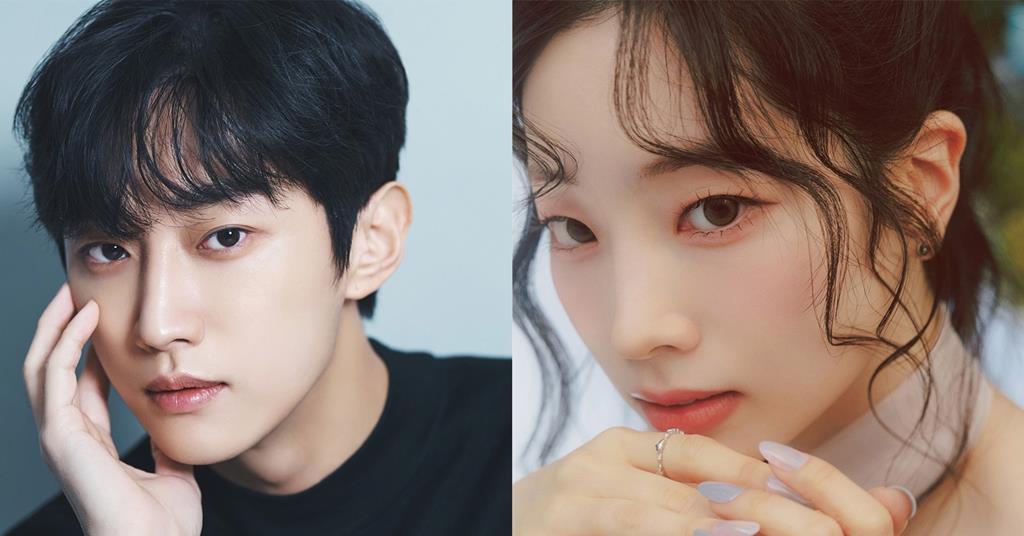The Disappointment of the Korean Remake of 'You Are the Apple of My Eye'

Hello, this is a review of the film 'You Are the Apple of My Eye' (그 시절, 우리가 좋아했던 소녀), which is a Korean remake of the beloved 2012 Taiwanese film. The Korean version premiered on February 21, featuring Jin Young (진영) from B1A4 and Dahyun (다현) from TWICE in the lead roles. I had not seen the original before, as I wasn't responsible for film coverage back in 2012 and didn't have a particular interest in romance films. However, this time, I approached it as part of my job. With no expectations, I watched the Taiwanese version first. Two hours later, I found myself chastising my past ignorance. The original truly lives up to its reputation. Excited, I went to see the Korean remake, only to be met with disappointment. This may not be an isolated issue but rather a reflection of why remakes of classics often miss the mark.
The story revolves around 16-year-old boys and girls, specifically the characters Ke Zhen Tong (커징텅) and Shen Jia Yi (션자이). The narrative of young love and the playful banter between them is a common trope, yet the Taiwanese version stands out remarkably. The failure of the Korean remake seems to stem from its inability to capture the original's vibrancy, instead opting for tired clichés that strip away the essence of the characters.
One of the most significant differences lies in the characters' liveliness. The Taiwanese film presents the teenage experience with a vividness that feels authentic, showcasing the contrast between the immature Ke Zhen Tong and the mature Shen Jia Yi. Their dynamic—where Ke Zhen Tong, who dislikes studying, finds himself drawn to the top student Shen Jia Yi, who in turn is frustrated by his childishness—creates a magical tension that the Korean version fails to replicate. Instead, the Korean adaptation feels like a generic portrayal of attractive young people, lacking the depth and charm of the original.
Director Jo Young Myung (조영명) stated in a press conference that the film focuses on the nostalgia of 'that time' and 'the girl' as its central themes. However, the original story is told from the perspective of a 32-year-old reflecting on his teenage years, making the boy's viewpoint crucial. The Korean version's focus on the girl necessitated a significant restructuring of the narrative, which it did not achieve.
While adaptations can take creative liberties, they must also present a distinct interpretation. Unfortunately, the Korean remake neither offers a fresh perspective nor captures the emotional impact of the original. The characters have been reduced to standard tropes seen in many Korean dramas, losing their unique identities.
A particularly striking moment comes when Shen Jia Yi expresses a rather mature sentiment for a 16-year-old: "Life is about hard work without reward." This line feels out of place for a teenager, raising questions about her character's development. Shen Jia Yi also tells Ke Zhen Tong that his childishness is of no help in life, yet she finds herself secretly admiring his antics. This contradiction is a key element of young love, which the Korean version fails to explore.
In the original, Shen Jia Yi plays a pivotal role in helping Ke Zhen Tong see the value of education, guiding him through their shared learning experiences. The Korean version, however, presents a less engaging dynamic, with Ke Zhen Tong lacking the endearing childishness that made him relatable.
The Korean adaptation misses the mark in character interpretation, presenting Shen Jia Yi merely as a pretty and studious girl, while Ke Zhen Tong comes off as just another typical teenage boy. Their interactions, such as playing with water guns, feel juvenile and lack the emotional weight that the original conveyed without needing to show every moment.
The film's failure to capture the essence of its characters is evident in scenes that should resonate with viewers. For instance, when Ke Zhen Tong loses a bet and shaves his head, the original's boldness reflects his character's spirit, while the Korean version opts for a more subdued approach, diluting the impact.
Another notable change is the character of the boy who dates Shen Jia Yi. In the original, he is a chubby boy, but the Korean version transforms him into a law student from a wealthy family, which feels like a forced fit into a romantic formula. This shift strips away the original's charm and understanding of the characters.
The Korean version also omits the concept of a 'parallel universe' that Ke Zhen Tong mentions in the original, which adds depth to his character. This element of self-reflection and acceptance is crucial to the story's emotional core, and its absence diminishes the overall impact.
Ultimately, the original film does not confine its characters to a coming-of-age narrative. The five friends reunite as they are, still engaging in the same playful antics and bravado, cherishing their memories without regret. The enduring memory of Shen Jia Yi connects them all, highlighting the beauty of youthful love.
I highly recommend watching the Taiwanese version of 'You Are the Apple of My Eye.' For those in their 40s and 50s who still feel youthful at heart, it offers a nostalgic journey back to those cherished days. The film is available on platforms like Wavve and Tving, while Coupang Play offers it for individual purchase. Below is a link to the film's theme song, 'That Time,' which I've been listening to as my work playlist lately. You can find various versions on YouTube, including scenes from the Taiwanese film. Until next time, thank you for reading.
What do you think?
0 reactions





